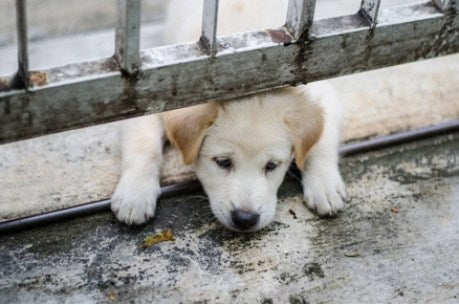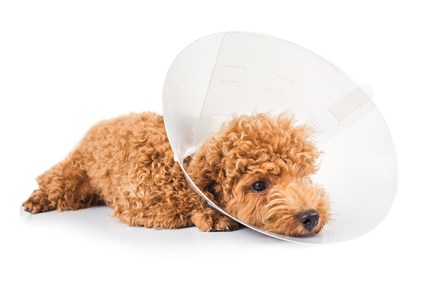Every pet owner wants and hopes that their pet can live a healthy and long life. Do you know? An average life expectancy of a neutered dog is 9.4 years while a not neutered dog have a shorter average life expectancy of just 7.9 years. It is the same observation in cats, with their lifespan averaging at 12.5 years for neutered cats and 8.5 years for those that did not undergo spaying or neutering.
While spaying and/or neutering have lifelong health and behavioural benefits, there is no definite answer on whether pet owners should sterilise their pets. This article will discuss what pet owners should expect and the pros and cons of spaying and/or neutering.
What Is Spaying & Neutering?
Spaying
It is the surgical removal of reproductive organs (ovaries & uterus) in female cats and dogs.
Neutering
A procedure referring to the removal of the male reproductive organ (testicles) surgically; known as castration. Similarly, procedures performed on both male and female pets are also know as ‘Neutering’.
What Is The Estimated Cost Of Spaying & Neutering?

Spaying and neutering are also known as sterilisation is one of the most common surgeries performed on animals. It is a one-off procedure that will benefit your pet’s lifetime. The estimated average cost of sterilising can widely range from SGD$150 to SGD$1000. However, the actual total cost of the procedures could vary depending on factors such as gender, age, size, degree of condition and the type of treatment option. By comparison, the cost of sterilisation may typically cost more for larger and/or female pets.
There are different neutering treatment options available. A more invasive form of treatment would be the traditional surgical procedures whereas laparoscopic procedures are also available as a minimally invasive treatment option.
Although some pet owners may worry about the cost of spaying or neutering, the cost of neutering, however, would cost less than the total cost invested into raising your pet’s offspring. It would also cost less than the possible vet fees incurred when your pet falls sick. This is because neutered pets are less prone to fatal diseases.
What Should I Expect During The Spaying Or Neutering Procedure?

Generally, pets that are undergoing sterilisation would receive a thorough pre-surgery body check-up to review your pet’s health. It is also done to check if there are any pre-existing medical conditions. Pet owners will then be briefed about the neutering procedures, potential risks or complications, and post-surgical care.
General anaesthesia and painkillers will be given to your pet before and after the procedures where and when necessary. Hence, your pet should not feel any pain. However, some clinics or pet hospitals may perform a recommended anaesthetic blood test on your pet prior to any surgical procedure. The test would help veterinarians assess the functionality of your pet’s liver & kidney function, red blood cell levels and blood clotting functions. This is done to help reduce potential risk from the general anaesthesia and surgical procedures.
To ensure the safety of your pet’s, their breathing rate, heart rate, blood pressure, blood oxygen levels, ECG, body temperature and carbon dioxide levels in the brain will be closely monitored during the entire surgery.
However, it is important to note that pet owners should consult their veterinarian for advice before deciding on the appropriate age for sterilisation.
When Should My Pets Be Spayed Or Neutered?
Dogs
The neutering age for dogs is typically 6 to 9 months old. However, puppies can also be neutered at a young age of 8 weeks old, this is as long as they are healthy. Although with older age means a higher risk associated with post surgical complications especially if they are overweight or have existing health problems. Despite that, adult dogs can also be neutered.
Before you decide if your dogs can be scheduled for sterilisation procedures, it is recommended to seek advice from your pet’s veterinarian.
Cats
Unlike dogs, there is no definite time frame when cats should be neutered. Hence, the general consensus is that kittens as young as just 8 weeks old can be spayed or neutered. It is recommended to schedule your cat’s surgery before they reach about 5 months of age. Female cats usually enter their first heat cycle at the age of 5 months.
However, it is important to seek advice from your pet’s veterinarian before deciding on the appropriate time for your cat to undergo the neutering procedure.
Pros & Cons Of Spaying Or Neutering My Pet(s)
Dogs

Pros
- Reduces the possibility of urine spraying and marking of territories.
- Decreases their urge to mate.
-
Reduces the risk of certain cancers that are fatal to dogs.
- Male dogs: lower risk of prostate cancer and testicular cancer such as hyperplasia, prostatitis and infection.
- Female dogs: lower risk of diseases such as uterine tumours, ovarian cysts, mammary tumours & pyometra.
- Generally calmer and more content to stay indoors.
- Male dogs are less likely to escape from homes looking for a female dog in heat.
- Prevents unnecessary breeding and reduces the number of unwanted or stray animals.
Cons
- Surgical complications or risks.
- Possible infection or inflammation of the incision wound.
- Swelling at the incision site caused by fluid or bleeding.
- May result in hormonal imbalance — could result in change in hormonal related health problems such as hypothyroidism and diabetes mellitus.
- Temporary urinary incontinence.
Cats

Pros
- Reduces the possibility of unwanted pregnancies.
- Prevent overpopulation of unwanted and stray cats.
- Reduces the urge to mate.
- Helps to calm your cat’s behavioural temperament.
- Male cats are less aggressive and territorial.
- Will tend to roam nearer to homes.
Cons
- Surgical complications or risks.
- Possible infection or inflammation of the incision wound.
- Swelling at the incision site caused by fluid or bleeding.
- Hormonal imbalance — change in hormonal related health problems such as hypothyroidism and diabetes mellitus.
- Temporary urinary incontinence.
How Should I Care For My Pet(s) Post Surgical?

It is important to discuss with your veterinarian the right care pathway so that your pet can have a safe and comfortable recovery. You can care for your pet post surgical by:
- Keep your neutered pet away from other animals.
- Prevent your pet from running or jumping for up to 2 week post surgery or for as long as recommended by your pet’s respective veterinarian.
- Prevent your pet from licking or scratching the incision site.
- Use an elizabethan collar.
- Avoid bathing your pets for at least 10 days post surgery, or as recommended by your veterinarian.
- Check the incision site daily to ensure proper healing.
- Failure to defecate for 1 to 3 days post surgery is normal.
- Anxiety and fussiness after surgery is usual.



